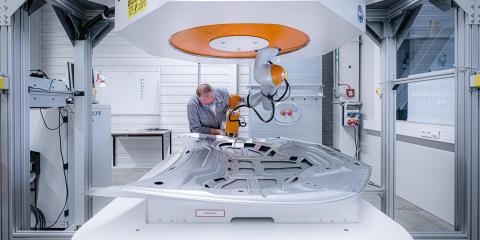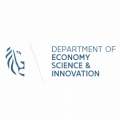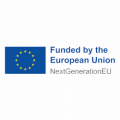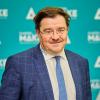How our accelerator programme aims to make manufacturing companies more resilient and sustainable

How our accelerator programme aims to make manufacturing companies more resilient and sustainable
Making production companies more resilient and sustainable at an accelerated pace, that is what Flanders Make wants to achieve with its 'accelerator programme', which recently received a ‘Flemish Resilience’ grant of 11 million euros, in addition to the 50 million euros that companies themselves put on the table. "A budget that benefits our economy, prosperity and thus ultimately the whole of society", says Dirk Torfs, CEO of Flanders Make.
Investing in resilience
The manufacturing industry in Flanders can but remain competitive by working flexibly and tailored to the specific customers' needs. This is what Flanders Make's Accelerator Programme for 'High Mix Low Volume' production (HMLV) is all about.
"With smart technology and investments in Industry 4.0, companies are able to limit their design and production costs and to remain competitive in that segment of customised small-volume production", Dirk Torfs explains. “As a result, we can keep manufacturing companies anchored here in Flanders as well. Furthermore, this approach makes them less dependent on foreign suppliers.”
With smart technology and investments in Industry 4.0, companies are able to limit their design and production costs and to remain competitive in that segment of customised small-volume production
Not surprisingly, the government has also made a substantial budget available for new research infrastructure. The investments made by companies and the government should help to strengthen Flanders as an innovative region and fits within the ambitious post-covid 'Flemish Resilience' relaunch plan.
ACCELERATED RESULTS THANKS TO KNOWLEDGE SHARING
Flanders Make's activities have always revolved around technology for production companies. Now, according to Dirk Torfs, digitalisation is more important than ever: “In this post-Corona relaunch period, we want to help companies to take advantage of accelerated digitalisation. We can demonstrate the opportunities by having a number of leading companies work together on a complete research and development project. They share their insights so that projects lead to results faster.”
Within the accelerator programme, Flanders Make will create a number of demo environments on the Flanders Make co-creation infrastructure. In addition, there will be pilot production lines on an industrial scale at the six participating lead companies: Atlas Copco, CNHi, Crop’s, Picanol, Sabca en Vandewiele, which work together with technology developers and suppliers. Their research and development tracks are shared across the six pilot production lines. Also the results that Flanders Make has obtained from research projects over the past six years are used.
We’ve chosen very deliberately for a cross-sector approach that considerably increases the practical applicability for the industry
"The six lead companies will serve as inspiration for others", says Dirk Torfs. "We’ve chosen very deliberately for a cross-sector approach that hugely increases the practical applicability within the industry. Such a coordinated initiative is unique and therefore also a real challenge."
Ecosystems that continue to grow
It is a challenge that Flanders Make can certainly handle. As a research institution that aims to bridge the gap between the research world and businesses, we are constantly creating ecosystems in which the various parties reinforce one another. This is also the philosophy behind the accelerator programme.
Dirk Torfs expects that "by achieving clear results in the pilot projects, other companies will be triggered to contact the lead companies. This in turn will create new, commercially interesting partnerships that can grow independently."
Benefits for all parties
Filip De Coninck, CVO at Flanders Make, sees major benefits at various levels: "The lead companies in the project get more out of their R&D programmes through cooperation with others. The suppliers involved – integrators and technology companies – are challenged to develop new technological solutions and integrate them into their service offer. They get immediate access to six key companies so that they can tackle it thoroughly.
"We want to provide as many concrete answers as possible to the challenges of businesses"
And for Flanders Make, this is a dreamed-of opportunity to convert our efforts in the field of research projects even more effectively into result-oriented applications in companies. We want to provide as many concrete answers as possible to the challenges of businesses. This is how we strengthen the Flemish manufacturing industry and create effective value chains: we bring together different parties that strengthen one another, not only for the duration of the project but way beyond it. The programme will therefore have a lasting effect within the market."
Flanders Make's typical approach as a bridge builder between the research and business worlds comes in handy here. "In fact, we are constantly building ecosystems in which partners and companies work together in a highly targeted way", says Filip De Coninck. "This allows us to achieve good results faster and better. This is essential for the future of our manufacturing industry, which is highly competitive worldwide."
From island automation to end-to-end digitalisation
In recent years, many companies have already invested heavily in digitalisation, but they usually focus on only one aspect of their business. They do not get beyond 'island automation'. When companies tackle digitalisation projects on their own, it requires a major investment of time, people and resources. By working together within an ecosystem, much more is possible thanks to economies of scale.
Filip De Coninck: "It is of course much more efficient to tackle everything at once. That is why we speak of 'end-to-end digitalisation', where all processes are connected and coordinated – from product design to production control and monitoring. With our new accelerator programme, we can use it even better as leverage for the local market."
Technology as leverage
Leverage is exactly the right word, because for Flanders Make technology is primarily a means and not an end in itself. "The question is above all what you do with it", says Dirk Torfs. "We want to use technology and digitalisation to create solutions that are efficient and effective, and ultimately achieve a higher goal. We use public funds for research that is then converted into added value for all stakeholders and even for the whole of society."
The new research and development programme is therefore perfectly in line with the objectives of the Flemish and European governments in terms of digitalisation, sustainability and transformation of the economy. "To tackle all these different levels, we need to look for answers to many different societal challenges”, explains Dirk Torfs. "As far as sustainability is concerned, it is, amongst other things, about the use of materials and raw materials, efficient production, innovation and the circular economy. Flanders Make's strategy fits in perfectly with this."
For Flanders Make, technology is primarily a means and not an end in itself
Workable work
Of course, this broader picture also includes people, who get caught up in this digitalisation. "In the business world, it is therefore essential that organisations that digitise their processes also focus on 'workable work', developing digital skills and supporting their employees", says Filip De Coninck.
"Digitalisation of heavy or routine tasks makes jobs in the manufacturing industry safer, more exciting and physically more tenable – which is also important considering the advancing retirement age. Technology can also play a very supportive role, even in sheltered workplace companies, for instance through the use of digital work instructions. You increase production quality and at the same time job satisfaction, and you make people more employable and versatile."
Projects with impact
Flanders Make's mission therefore goes much wider than the purely technological. Dirk Torfs: "We want to put companies on the right track and make sure they improve their overall competitiveness. We do this by using technology for innovation and for realising social objectives. In this sense, our accelerator programme is also very relevant to society. You just have to link all aspects and levels of interaction to create a big impact."
*This article was first published on Bloovi.be.
Contact us
With the support from



